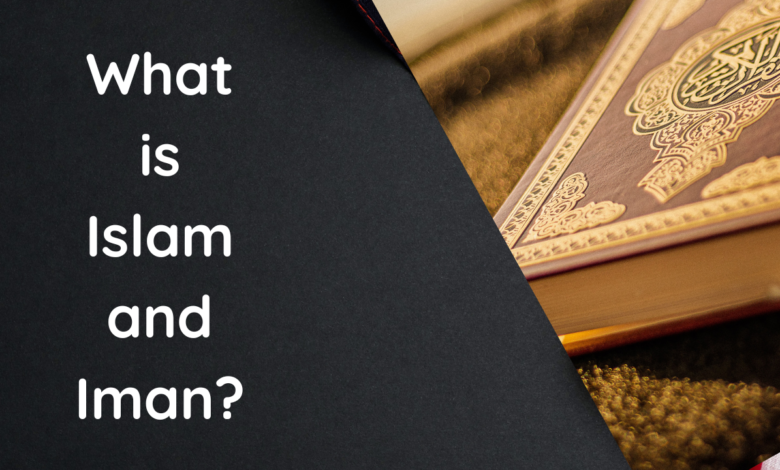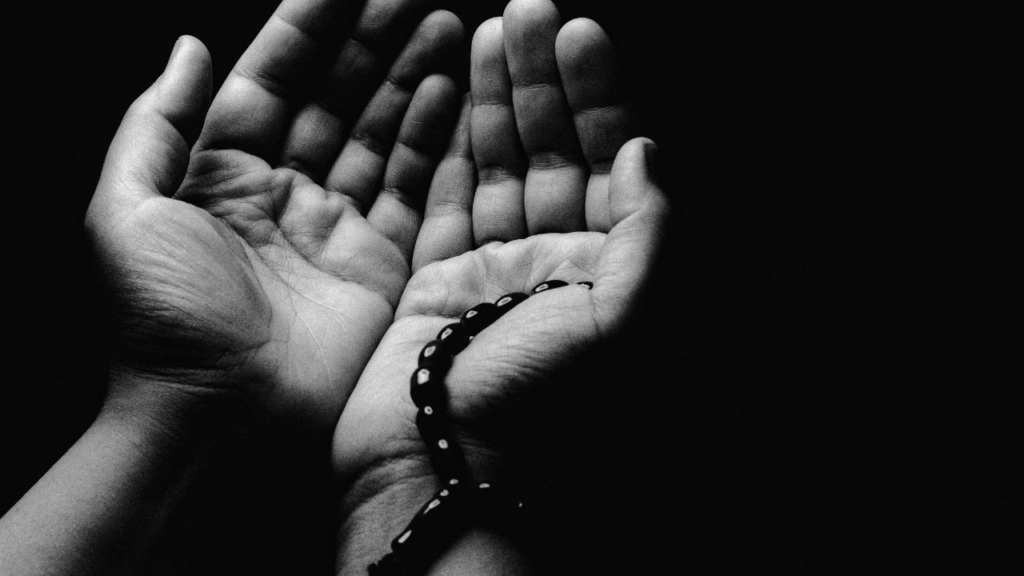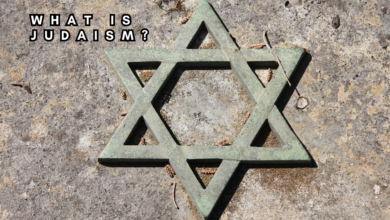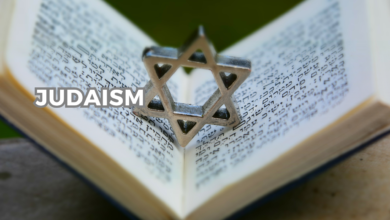
What is Islam and Iman?
Islam is a monotheistic Abrahamic religion that emphasizes submission to the will of God, known as Allah in Arabic. It is based on the teachings of the Prophet Muhammad and the holy book, the Quran.

Introduction
Islam, one of the world’s major religions, is often misunderstood and misrepresented in various parts of the world. To truly comprehend this faith, it is essential to delve into its core principles, beliefs, and practices. Central to the understanding of Islam are two fundamental concepts: Islam and Iman. In this article, we will explore the meanings and significance of these terms and how they shape the beliefs and practices of Muslims around the globe.
Islam: Submission to the Will of God
The term “Islam” is derived from the Arabic root word “S-L-M,” which means peace, submission, and surrender. In the context of religion, Islam represents submission to the divine will of God, known as Allah in Arabic. It is the belief that one’s purpose in life is to submit to God’s commandments, recognizing that God alone is worthy of worship. Muslims believe that Islam is the culmination of a series of divine messages that began with Adam and continued through various prophets, including Noah, Abraham, Moses, and Jesus.
Key Principles of Islam:
- Monotheism: Islam’s core belief is the concept of Tawhid, which asserts the absolute oneness and uniqueness of God. Muslims believe there is no deity except Allah, and He has no partners or associates.
- The Quran: The Quran is the holy book of Islam, believed to be the literal word of God as revealed to the Prophet Muhammad over a period of 23 years. It serves as a comprehensive guide for Muslims, providing principles of faith, morality, and conduct.
- The Five Pillars of Islam: These are the foundational acts of worship and practice for every Muslim: a. Shahada (Faith): The declaration of faith that there is no god but Allah, and Muhammad is His messenger. b. Salat (Prayer): The practice of five daily prayers facing the Kaaba in Mecca. c. Zakat (Charity): Giving to those in need, typically calculated as a percentage of one’s savings and income. d. Sawm (Fasting): Observing fasting during the month of Ramadan from sunrise to sunset. e. Hajj (Pilgrimage): Performing the pilgrimage to Mecca at least once in a lifetime, if physically and financially able.
Also check.
- What is Indo Islamic Culture?
- What is in Heaven Islam?
- When did Sunni Islam Start?
- Which types of Clothes are Haram on Men?
- What is Jihad?
Iman: Faith in the Heart
Iman, often translated as “faith,” is a crucial component of a Muslim’s relationship with God. It represents the inner belief, conviction, and trust in God and His guidance. Iman is a deeply personal and spiritual experience and encompasses six key articles of faith:
- Belief in Allah: Muslims believe in the oneness of God and His attributes, including His mercy, justice, and omnipotence.
- Belief in Angels: Muslims accept the existence of angels who carry out various tasks according to God’s commands.
- Belief in Divine Books: This includes a belief in the scriptures revealed by God to His prophets, such as the Quran, the Torah, the Psalms, the Gospel, and others.
- Belief in Prophets: Muslims have faith in the messengers sent by God to guide humanity, including Adam, Noah, Abraham, Moses, Jesus, and the final prophet, Muhammad.
- Belief in the Day of Judgment: Muslims believe in the resurrection and accountability for their deeds on the Day of Judgment.
- Belief in Qadar: This relates to God’s divine decree, encompassing everything that happens in the universe, both good and bad.
In essence, Iman is the foundation of a Muslim’s relationship with God, representing their unwavering belief in His existence and His divine plan for the world.
Conclusion
Islam and Iman are two fundamental concepts that define the beliefs and practices of Muslims worldwide. Islam represents submission to the will of God, while Iman is the inner faith that lies at the core of a Muslim’s spiritual journey. These concepts, along with the Five Pillars of Islam and the six articles of faith, guide the lives of Muslims, fostering a sense of peace, purpose, and connection to the divine. Understanding Islam and Iman is not only essential for promoting religious tolerance and interfaith dialogue but also for appreciating the rich tapestry of beliefs and practices that enrich the lives of millions of Muslims around the world.

FAQs
What is Islam?
Islam is a monotheistic Abrahamic religion that emphasizes submission to the will of God, known as Allah in Arabic. It is based on the teachings of the Prophet Muhammad and the holy book, the Quran.
What is the core principle of Islam?
The core principle of Islam is the belief in the oneness of God (Tawhid) and the submission to His divine will.
What does the term “Iman” mean in Islam?
Iman, often translated as “faith,” represents the inner belief, conviction, and trust in God and His guidance. It is a fundamental aspect of a Muslim’s relationship with God.
How do Muslims express their faith through the Five Pillars of Islam?
The Five Pillars of Islam are expressions of faith and include the declaration of faith (Shahada), daily prayers (Salat), charity (Zakat), fasting during Ramadan (Sawm), and the pilgrimage to Mecca (Hajj).
What are the core beliefs of Iman in Islam?
Iman encompasses six key articles of faith: belief in Allah, belief in angels, belief in divine books, belief in prophets, belief in the Day of Judgment, and belief in Qadar (divine decree).
Who are some of the prominent prophets in Islam?
Islam acknowledges many prophets, including Adam, Noah, Abraham, Moses, and Jesus. The final prophet is Muhammad.
What is the role of the Quran in Islam?
The Quran is the holy book of Islam, believed to be the literal word of God. It serves as a comprehensive guide for Muslims, providing principles of faith, morality, and conduct.
How do Muslims view the concept of the Day of Judgment?
Muslims believe in the resurrection and the ultimate accountability for their deeds on the Day of Judgment. It is a central concept in Islamic eschatology.
What is the significance of the pilgrimage to Mecca (Hajj)?
The Hajj is one of the Five Pillars of Islam and is considered a mandatory religious duty for Muslims who are physically and financially able. It involves a pilgrimage to the holy city of Mecca.
How can I learn more about Islam and Iman?
To learn more about Islam and Iman, you can read books, visit local mosques or Islamic centers, engage in interfaith dialogues, or access online resources and courses on the subject. It’s essential to approach learning with an open and respectful mindset.




